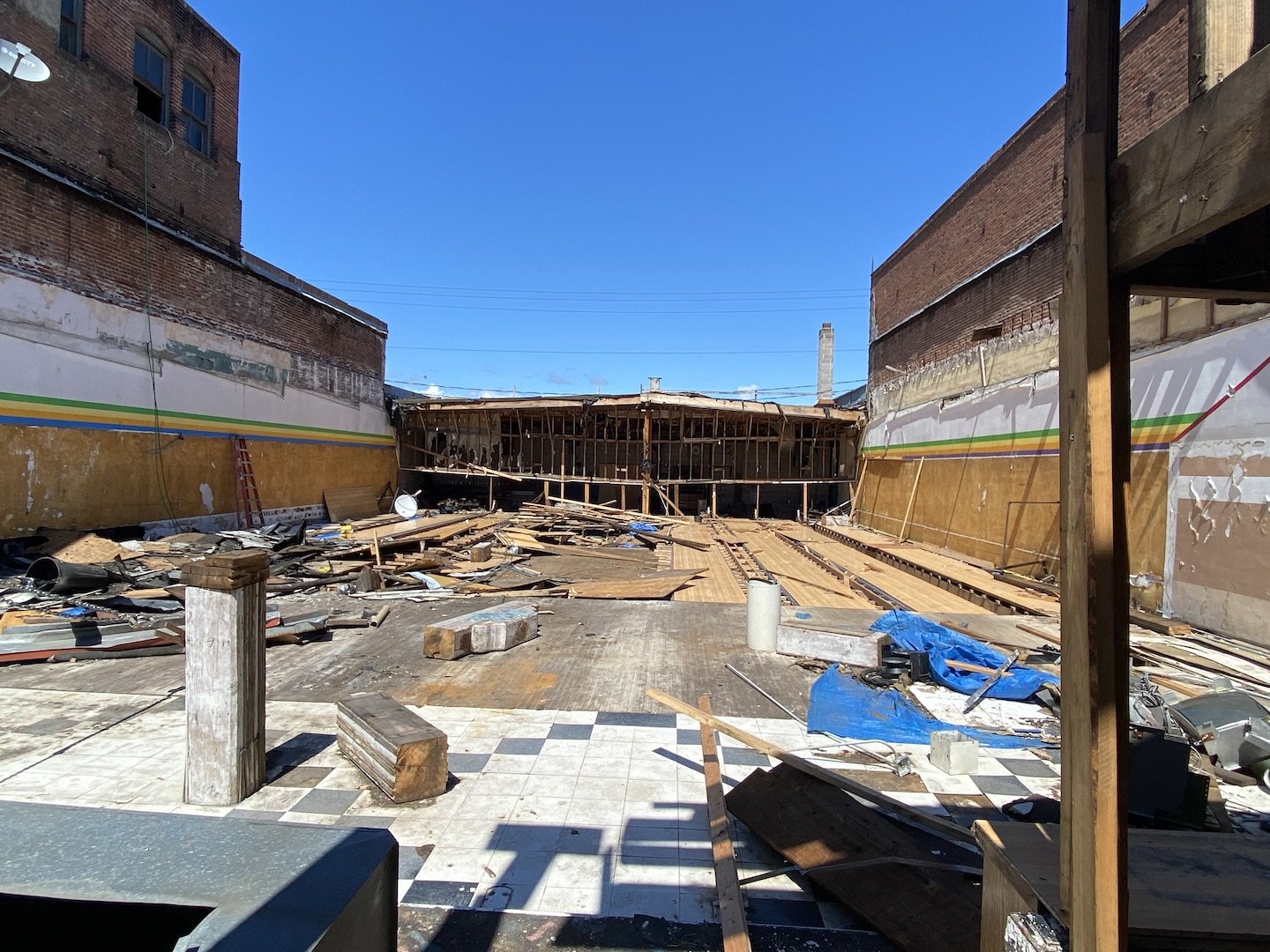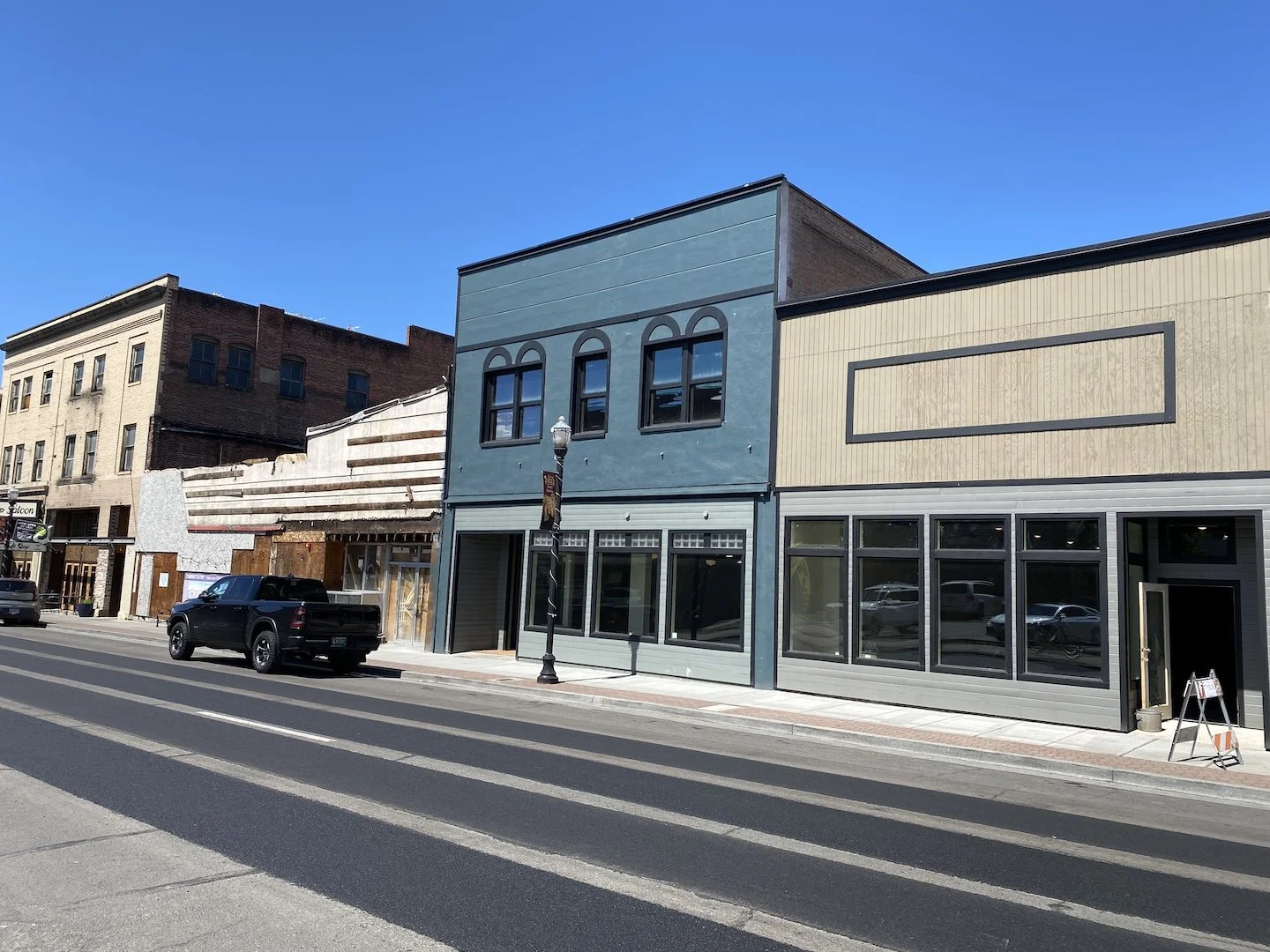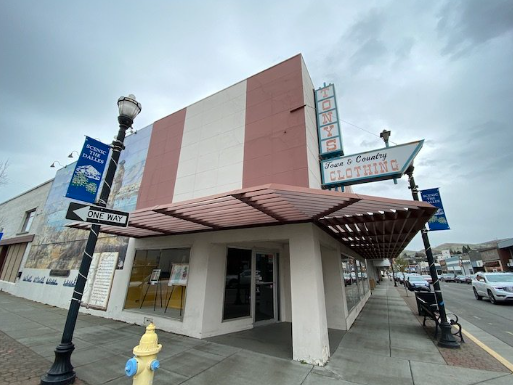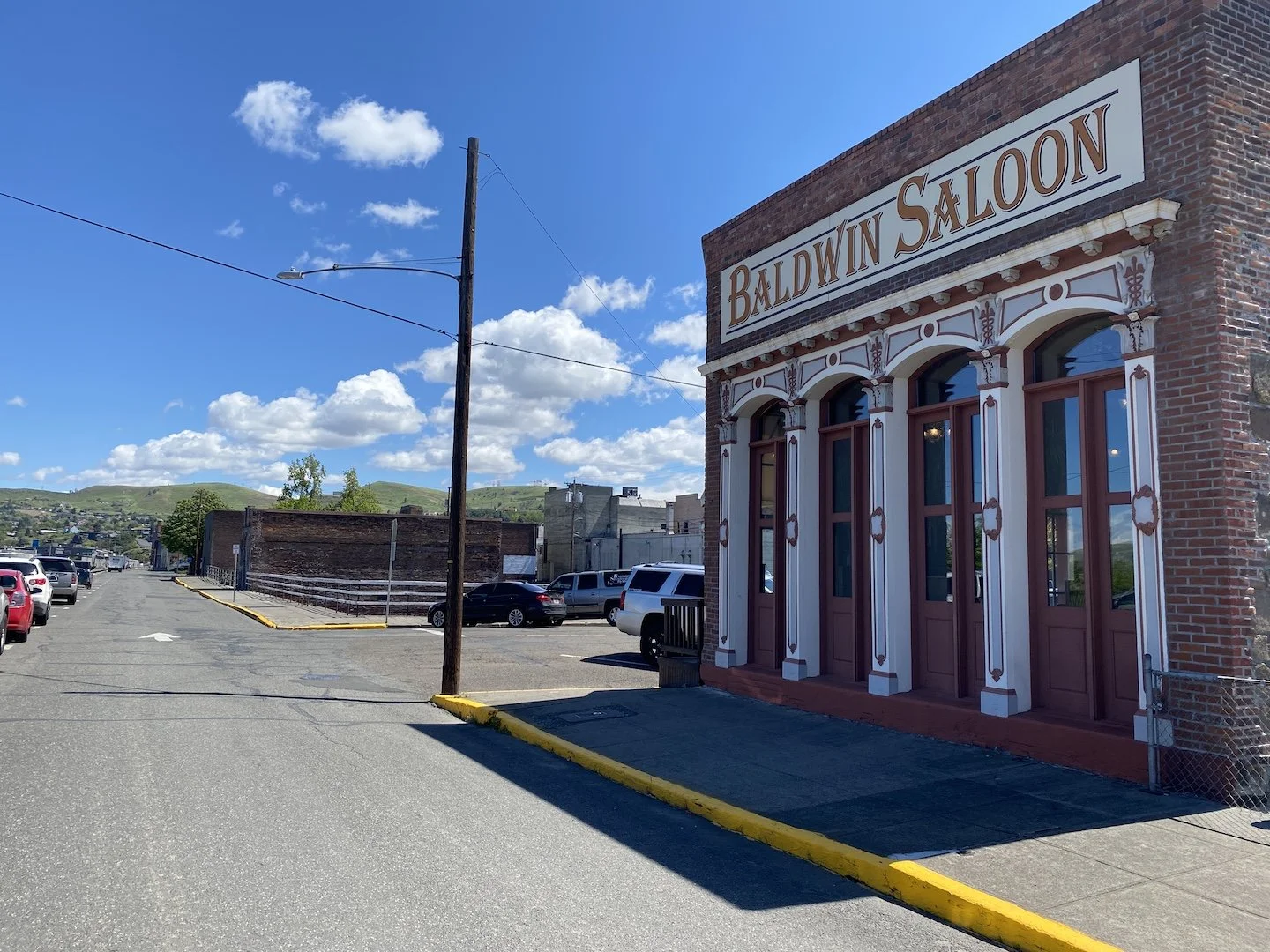TD Open For Business: Urban Renewal Grants, up to $700k, look to lift Business Core
Demolition is underway inside the former Recreation Building in the 200 block of East Second Street, downtown The Dalles. Owner Todd Carpenter said infrastructure work in the basement floor is set to start next. The building is an example of some of the revitilization taking place downtown. Urban Renewal recently created a grant program to assist property owners with major renovations.
By Tom Peterson
A seismic change in the way Columbia Gateway Urban Renewal Board allocates money to projects in the Central business core in The Dalles was approved on Tuesday, May 17.
Grants that require some matching funds rather than loans will be offered, ranging between $50,000 and $700,000 in an effort to bolster the local business district.
In past years, the Board has loaned money or outright purchased vacant buildings in hopes of attracting investors who would then find new uses for those buildings or properties and then invest in them for projects that buoy the local economy.
For example, the agency purchased the Elks building for $180,000 and then sold it to David Benko for $1, who then established the National Neon Sign Museum.
However, on Tuesday night, the board created a series of grants and opportunities that put current and future building owners in the driver's seat when it comes to reinventing properties for different uses including retail, food, beverage, lodging and residential opportunities.
“I definitely feel this package is the right way to go to increase the tax base and add employment,” said Darcy Long, Urban Renewal Chair. “Some of it will be renovation and some will be new construction like at the Tony’s site… this will move downtown forward, and the incentives will make a noticeable impact sooner rather than later.”
The Recreation building is being transformed on East Second Street under the ownership of Todd Carpenter and Carla McQuade. New Urban Renewal incentives hope to produce similar results throughout the commercial district.
The Dalles Community Development Director Alice Cannon presented the incentive program.
Commercial Project Grants
Urban renewal will pay up to $50,000 in a matching grant to fund smaller building upgrades, tenant improvements, and similar types of rehabilitation projects building community vitality and prosperity. For example, on a $100,000 building upgrade, urban renewal would pay $50,000 and the property owner would pay $50,000 to reimburse for the construction of real physical improvements that meet agency priorities, plan goals.
Mixed-Use Project Grants
They will be used for buildings with, for example offices and residential housing, up to $700,000. These matching grants will be used to fund transformational mixed-use redevelopment and reinvestment in underused or vacant properties.
Urban Renewal will pay 70% with a matching grant from property owner of 30%. For example, a building needing a sprinkler system upgrade costing $100,000 could receive $70,000 from Urban Renewal, and the property owner would pay $30,000.
The grant is for larger and more transformational mixed-use projects constructing real physical improvements and meeting Plan goals, Agency priorities, and Incentive Program eligibility specifications outlined here.
New Residential Project Grants
Property owners will receive $10,000 per new housing unit in Service Development Credits (SDCs) to assist with the costs of building new housing in the area. Approved SDC credits will be applied at building permit issuance and will have the same terms and expiration date. Development charges are City or District fees for utilities and amenities such as parks, which tack on thousands to the cost of building housing.
Furthermore, a property may qualify for more than one of the grants listed above, depending on the uses.
Cannon told the Board that other project requests that exceed the $700,000 grant cap would be dealt with on a case-by-case basis. In addition, she said any grant exceeding $50,000 would go before the Board for review.
She also noted that there is currently one “big project” on the horizon that could possibly add more than 50 housing units and would exceed the $700,000 cap.
Board Member Dan Richardson asked what the grant payment triggers would be in regard to completion, noting the money should lead to “finished projects.”
Cannon said she and City Attorney Jonathan Kara would iron out those details and bring them back to the Board at the next meeting.
The Board approved the resolution to create the grant program with none opposed. However, Board Member Lindsey Giamei abstained from voting because of a conflict of interest.
Long offered “Kudos to staff and the entire board” who put a lot of thoughtful discussion into the grant opportunities.
“There some real energy coming to downtown and it’s really exciting,” she said.
Cannon said applications for the grant will be available in the week to come.
One last point, the new grants add to the rejuvenation tools the City already had, including brownfield grants which assist in paying for environmental hazard removals as well as redeveloping older structures. Check out a press release on it here.
Tony’s Town and Country on East Second Street, The Dalles
Tony’s Town and Country Update
Cannon reported that state funding is available to pay for $250,000 toward the clean up of the building, 401 E. 2nd St., once it is demolished in months to come. She said they are working on a request for proposal to complete the demolition by this fall.
Looking east down First Street, this section will get a facelift in
First Street Project
Cannon said it was not likely they would be partnering with Oregon Department of Transportation for the construction project because the agency could not likely get to it in the next two years.
The First Street Project is a street reconstruction between Union and Laughlin Streets involving new utility lines, new fill material to reenforce the street, brand new sidewalks with ADA ramps, and new asphalt. In addition, Cannon said irrigation for trees along the street has been added back into the project. She also noted pavers, different than the ones on Second Street, will be used. She said Second Street pavers had faded quickly, leading her to use other material. After questioning, Cannon said she will continue to be in contact with The Dalles Beautification Committee as well as concerned citizens on the project.
Budget Approved
Board members unanimously approved a $7 million budget that puts $5.4 million toward operations and $1.6 million toward debt service.




